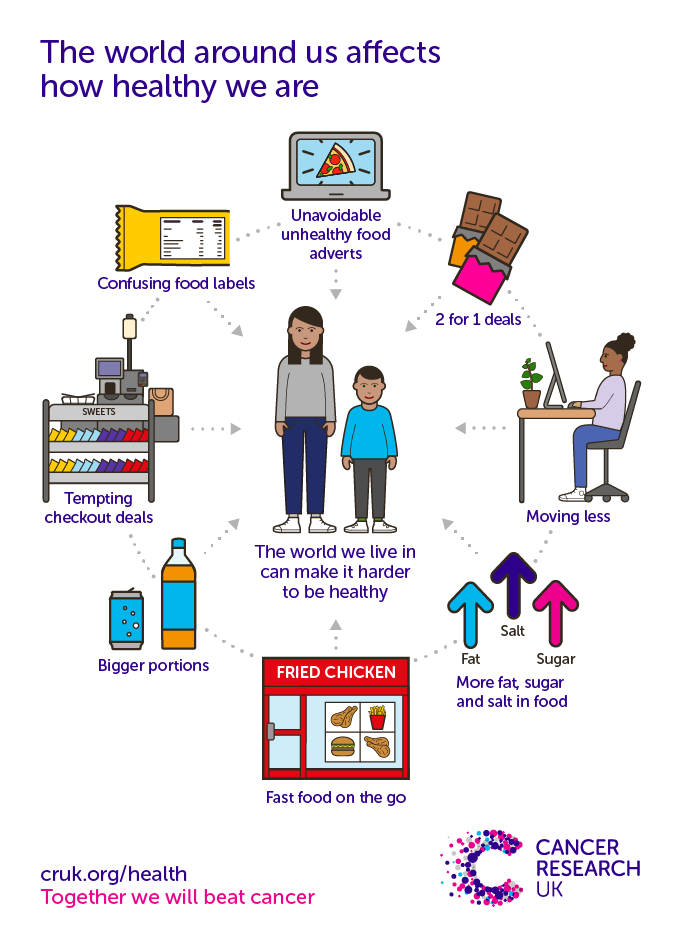This article consists of 05 pages and 1236 words. 3 key causes of obesity in UK adolescents & the possible long term health effects of obesity in this population group. In order to have full access to this article, email us at thedocumentco@hotmail.co.uk

Ref No: 1226
Introduction
Obesity is the major dietary health problem in many countries. Obesity in the U.K is fairly common among teenagers. In the U.K, over 25% of the population are obese. The prevalence of obesity depends upon a number of factors including age, diet, ethnic etc.
Majority of people linked obesity to the weight of a person but overweight is another term which is define as an excess of body weight that contains bone, fat, muscle and water, while the term obesity particularly refer to excessive amount of fat in the body.
Some people, for instance, athletes and bodybuilders with a lot of muscle, without being abese can be overweight. Being obese or underweight refers to excessive accumulation of fat in the body which may result in disease.
According to the National health survice survey, Obesity in males rising from 13-24% while in females rising from 16-24% from 1993 to 2006. Obesity results from abnormal dietary patterns- a disproportion between energy intake and expenditure.
Obesity is positively associated with time spent watching television and in an inverse manner with physical activity. Psychological factors may also play a role, people with Bulimia Nervosa (Eating disorder) may secretly binge- eating great quantity of food- and then purge.
Obesity is identified by the body mass index (BMI) which is a simple calculation which classifies a person according to a set score. According to World Health Organisation (WHO), a body mass index greater than or equal to 25 is classified as overweight where as an index of greater than or equal to 30 is classified as obese.key causes of obesity in UK adolescents
Since 1980, obesity rate worldwide has doubled. 39% of adults of 18 years and over were known to be overweight last year while 13% of them were obese (WHO). Two studies were performed regarding the obesity issue in the past that support a genetic method of inheritance and suggesting a polygenic disorder.
Occassionally, some causal factors can be discovered such as insulinoma, hypothyroidism etc. Because of chronic diseases, such as heart diseases, stroke, cancer etc Obese patients have about a three fold increase in deaths.
Obese men are more predilected to cancer of colon than non-obese men, whereas, Obese women are more predilected to cancer of gall bladder than non-obese women. Drug with some success include: beta-blockers, tricyclic antidepressanta and sodium valproate.
COMPLICATIONS OF OBESITY:
Some of the health risks of obesity are,
– Growth
– Coronary heart disease
– Sleep apnoea
– Non-alcoholic steatohepatitis
– High blood pressure
– Stroke
– Type 2 diabetes
Obese children mature earlier than non-obese children. Obesity reduces life expectancy by 13 years amongst smokers. The major cause of death among obese people is Coronary heart disease.
INVESTIGATIONS:
Obesity can be determined by using the body mass index.
– Normal 18.5-25
– Overweight 25-30
– Obese >30
FACTORS:
The three main factors are,
– Lifestyle.
– Diet.
– Imbalance between energy intake and expenditure.
One of the main causes of obesity is related to the imbalance between calories-in and calories-out. The World health organization discovered that a limitation of physical activity with over consumption of foods with high levels of saturated fats increased the rate of obesity over three fold since 1980 in the U.K.
Although a healthy diet and exercise is widely important, further research into the forms of exercise and the diet that is effective in this issue is needed.
Moreover, majority of people do not change the lifestyle that they need, to control their obesity and therefore they need to follow clinician interventions that can influence the maintenance of their physical activity and healthy eating.
The surrounding that an individual acquire is also important. For instance, Asians have a greater amount of body fat that contributes to increased risk of type 2 diabetes and coronary heart disease. This underestimation amongst specific population needs…

Recent Comments